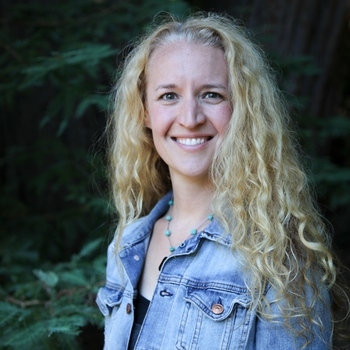
Dr. Emily Cree
Introduction
Dr. Emily Cree has dedicated her career to working holistically with children, adolescents, young adults and their families to support their mental health. She strives to provide compassionate and collaborative therapeutic care to clients and their families in managing anxiety, autism, mood concerns, ADHD, relational difficulties, etc. Dr. Cree believes in the importance of relational health and connection as essential components of growth and healing, and strives to implement these values within her therapeutic process. Dr. Cree attended Biola University for her undergraduate degree in Psychology and a minor in Intercultural Studies. After graduating, she worked with an organization serving older adults, many of whom suffered from Dementia or other neurological issues. She later attended Fuller Theological Seminary’s School of Clinical Psychology to obtain her PsyD in Clinical Psychology. While there, she worked with a variety of age groups and settings, from young children to adults, and implementing interventions to address anxiety, depression, autism, relational conflict, ADHD, behavioral and emotional regulation difficulties, etc. She has worked in inpatient and outpatient settings, community organizations, and with specialized training in diagnostic evaluations for autism (ASD), ADHD and learning differences. She has supervised and managed staff, developing naturalistic and developmentally-based treatment services for children diagnosed with ASD, and provided parent education and support. She has also taught MFT students leading their practicum course and providing case consultation in their clinical work. During her free time, Dr. Cree enjoys spending time with friends and family, and enjoying the great outdoors, reading and traveling. Education PsyD, Clinical Psychology, Fuller Theological Seminary School of Psychology MA, Clinical Psychology, Fuller Theological Seminary School of Psychology BA, Psychology, Biola University Licenses Licensed Clinical Psychologist, California Board of Psychology (PSY24623) Professional Affiliations American Psychological Association (APA) Recent Presentations Attachment and Developing Relationships (presentation to ESBA staff in 4/2015) The Basics of Autism Spectrum Disorder: What that Means for Treatment (presentation to ESBA staff in 2013) February, 2016: Anxiety & Depression: Effects on Learning and Classroom Strategies to Help, presented at CHC and various schools April, 2018: Kids Who Worry, presented at CHC with doctoral psychology intern, Sharon Lo, MA 2021-2023: Leading a Parent Support Group for parents of children with ADHD Publications Putman, K. M., Lantz, J. I., Townsend, C. L., Gallegos, A., Potts, A., Roberts, R., Cree, E. R., DeVillagran, M., Eriksson, C. B., & Foy, D. W. (2009). Exposure to violence, support needs, adjustment, and motivators among Guatemalan humanitarian aid workers. American Journal of Community Psychology.
Highlights
- Accepting new clients
- In-person & telehealth appointments
- Accepts online payments
- Offers flexible fees
Licenses
-
Psy. D. #PSY 24623 (CA)
Specialties
Additional focus areas
Treatment Approaches
Population focus
Appointment types
- Individuals
- Families
Age groups
-
Toddlers (under 6)
-
Children (6-12)
-
Teenagers (12-18)
-
Young Adults (18-24)
-
Adults (24+)
Languages
-
English
Offers flexible fees
Pay with insurance
Looking for practitioners who accept insurance?